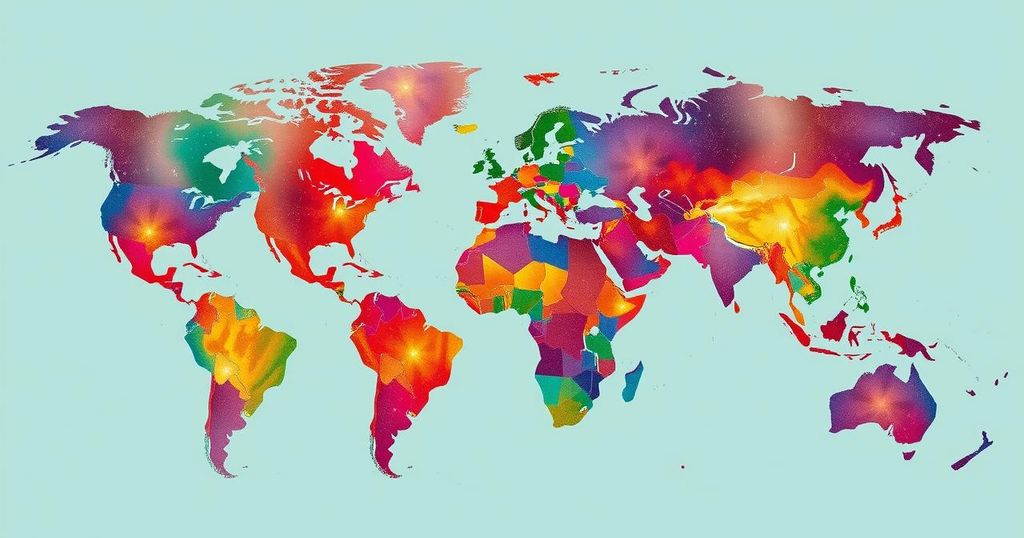Civil Society in 2025: Challenges Ahead and Resilience in Advocacy
The article discusses the challenges and resilience of civil society in 2024, focusing on heightened tensions, economic instability, and the implications of climate change, while emphasizing the ongoing fight for human rights. Despite significant adversities, civil organizations achieved notable victories and are poised to continue their advocacy in 2025.
The year 2024 has been fraught with challenges for civil society, emphasizing the ongoing struggle for human rights and social justice. Despite aggressive pushbacks, civil organizations have remained steadfast in their resistance to oppressive regimes and regressive policies, often at considerable personal and organizational cost. As we approach 2025, the severity of the issues identified in 2024 is expected to escalate, demanding an unwavering commitment from civil society worldwide.
Increasing tensions in regions such as Lebanon and Syria reflect the volatile geopolitical landscape, driven by the varying interests of influential states. These dynamics pose both risks and opportunities for civil society. 2025 marks a pivotal year for climate action under the Paris Agreement, culminating in COP30, necessitating a robust challenge to fossil fuel interests if the world aims to achieve significant climate goals. Without decisive action, the dialogue may shift towards adaptation rather than prevention.
Globally, economic instability is predicted to worsen, pushing more individuals to the brink of poverty as the disparity between the wealthy and struggling populations becomes increasingly pronounced. This economic distress may incite civil unrest, particularly among youth facing limited opportunities, leading to a heightened demand for progressive policies like wealth redistribution and labor rights.
As the democratic landscape evolves, many countries will hold elections, with voters likely to favor anti-establishment candidates amid economic turmoil. This trend may embolden right-wing populists; nevertheless, their tenure may be equally challenged as they too become entrenched in the political hierarchy.
In addition to these societal shifts, the role of technology and generative AI poses a dual challenge, particularly concerning surveillance and disinformation campaigns targeting civil society and its advocates. The regulatory frameworks concerning these tools are anticipated to lag, while the normalization of AI-enabled repression will likely become commonplace.
Civil society will also grapple with the ramifications of international displacement, driven by conflicts, economic downturns, and systemic injustice directed at marginalized groups, including women and LGBTQI+ communities. In response to increasing hostility, civil organizations often find themselves defending hard-won rights in hostile environments, exerting disproportionate resources to safeguard their operations and freedoms.
Despite the daunting landscape, civil society has achieved noteworthy victories throughout 2024, including comprehensive reforms in various countries that reflect grassroots advocacy. From legalizing same-sex marriage to fighting against corruption, these achievements highlight the resilience and ingenuity of civil organizations.
As we transition into 2025, civil society will persist in advocating for a more equitable and just world. The interconnection of global issues underscores the importance of solidarity among diverse movements, allowing for broader collaborations that contribute to meaningful change. The ongoing commitment to human rights advocacy presents a glimmer of hope amidst significant challenges ahead.
The article explores the ongoing struggles and emerging challenges faced by civil society organizations globally, particularly in the context of heightened geopolitical tensions, economic instability, and social injustice. It highlights the critical juncture presented by the upcoming COP30 climate summit, the evolving political landscape influenced by right-wing populism, and the implications of technological advancements such as AI on civil efforts. The discourse also emphasizes the importance of resilience within civil society as it continues to push back against adversity and strive for social reform and rights protection.
The challenges facing civil society in 2025 are profound, yet the resilience demonstrated during 2024 underscores a persistent commitment to advocacy and human rights. As these organizations confront escalating pressures, the importance of solidarity across varied movements becomes increasingly evident. The victories achieved in the past year confirm that, despite oppressive circumstances, civil society remains a critical agent of change and hope for a more equitable global future.
Original Source: www.ipsnews.net




Post Comment